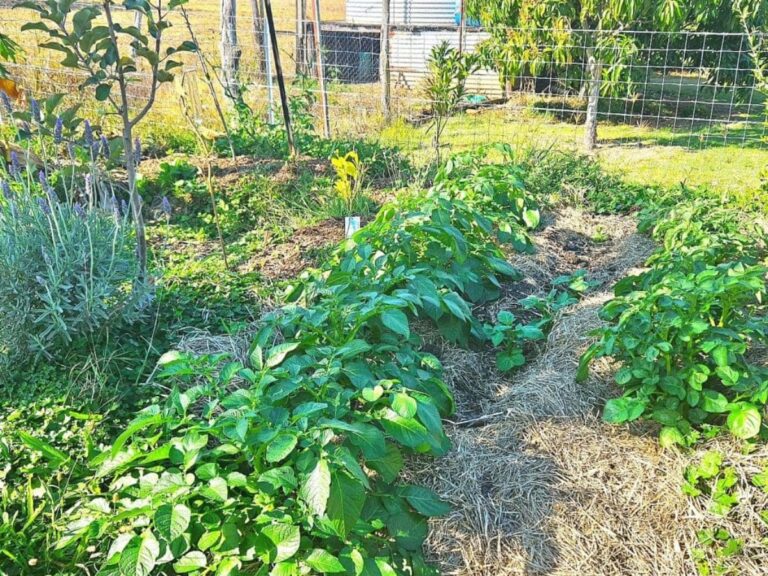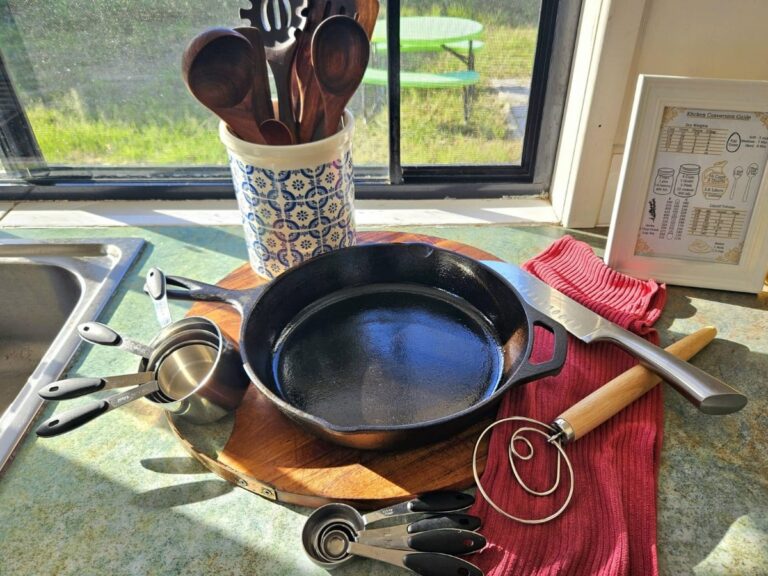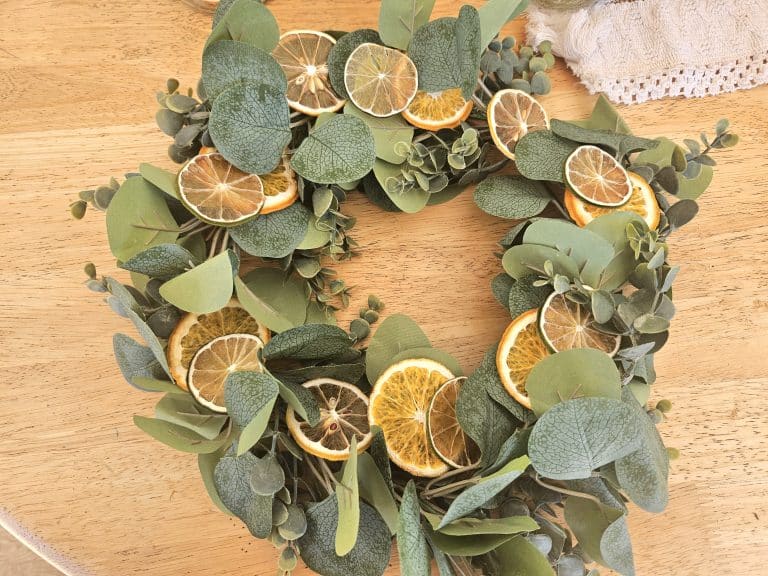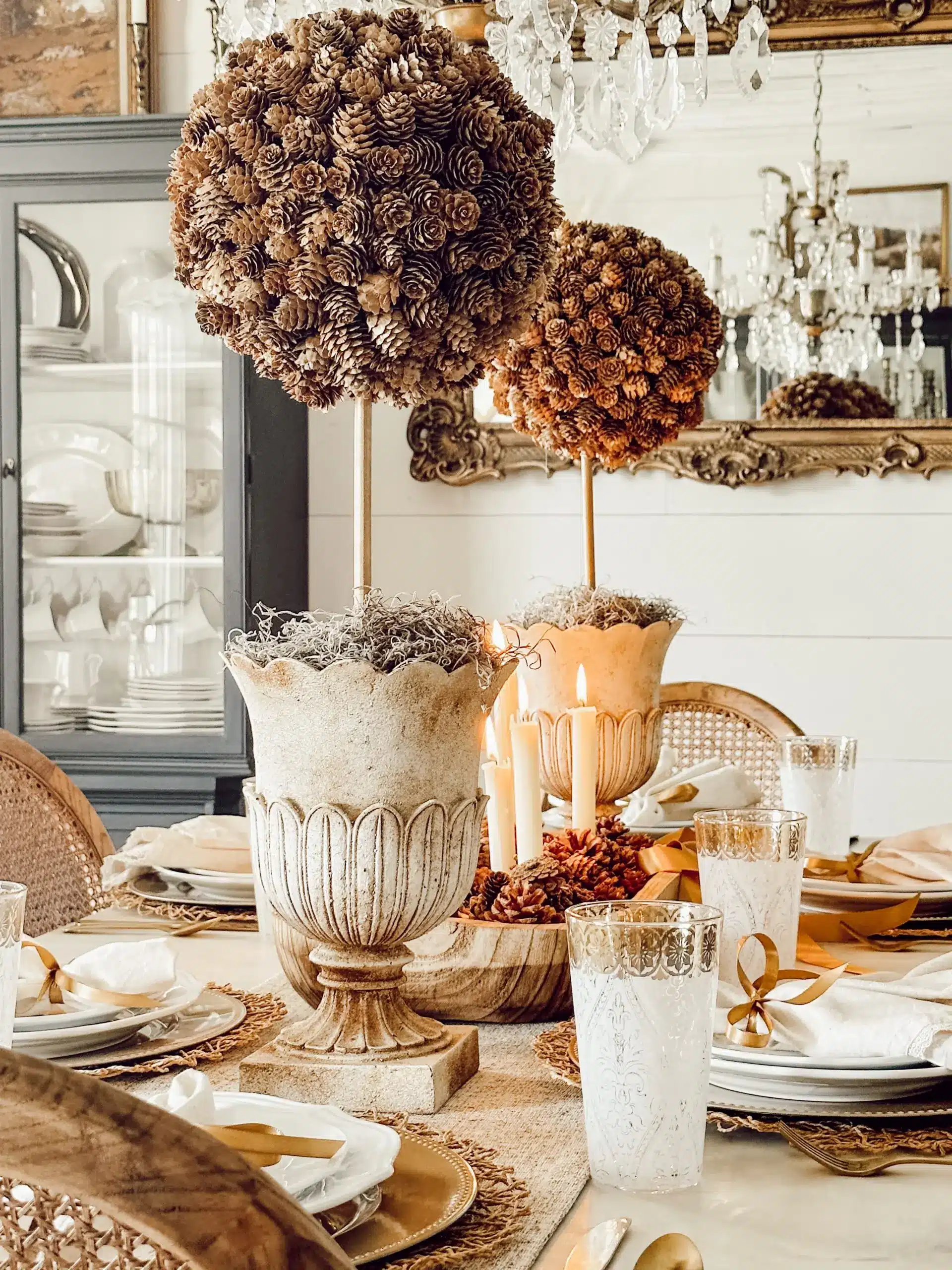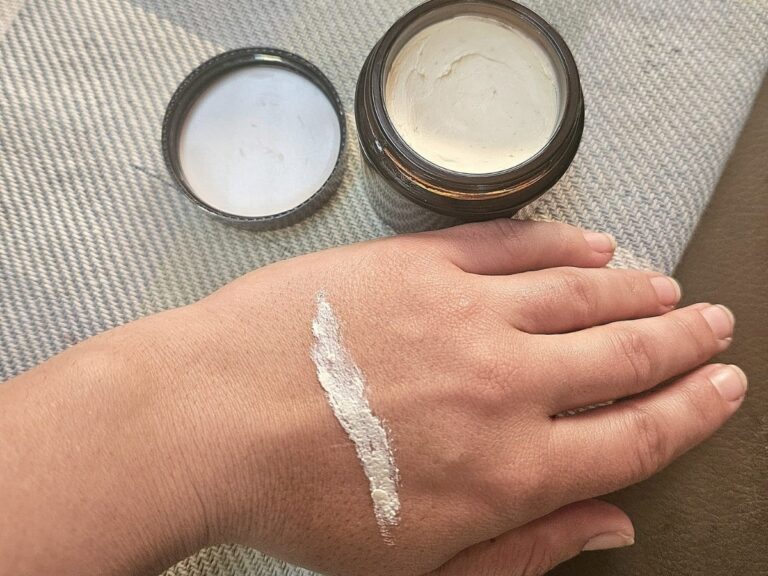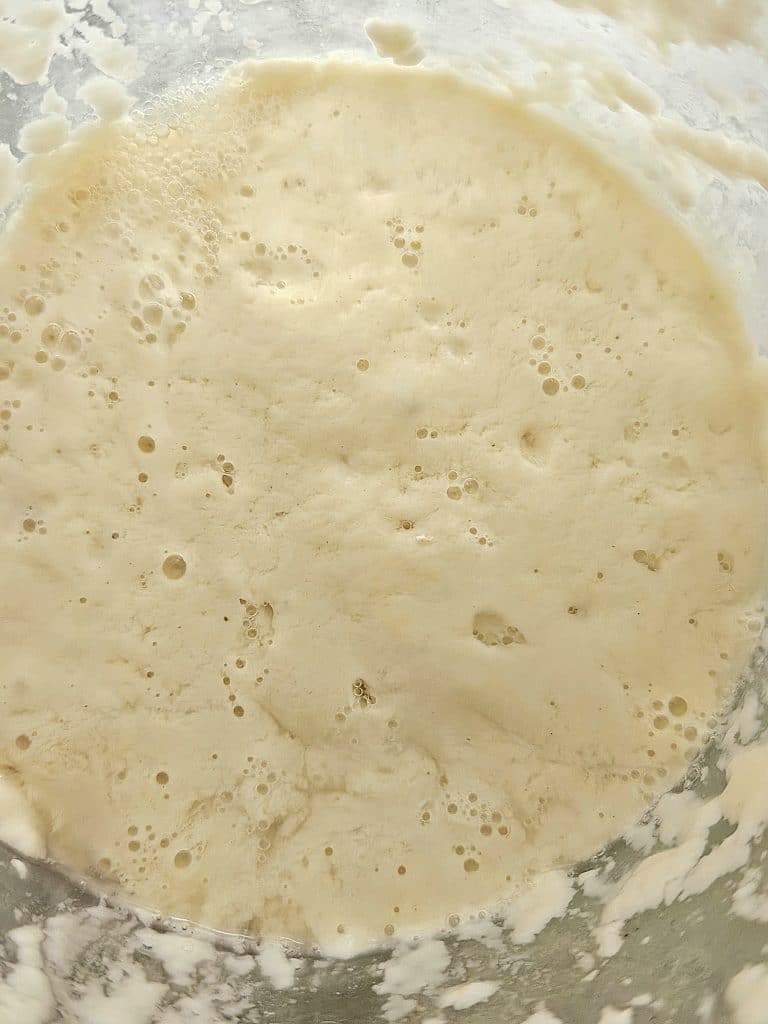Homemaking Skills To Help You Be A Better Housewife
Since I was a little girl, I wanted to be a stay at home mother and a housewife. Yep, I said it, that was my ambition and dream.
I have to say now that I am mostly a stay at home mom and housewife it’s a lot more work than I anticipated.
I didn’t realise there where so many homemaking skills I would have to learn!
The homemaker has many plates spinning at any one time, they are prepping meals, budgeting, cleaning, taking care of kids, mending broken toys or small rips in clothes, they are driving to appointments, getting the groceries and in general keeping the house constantly going.
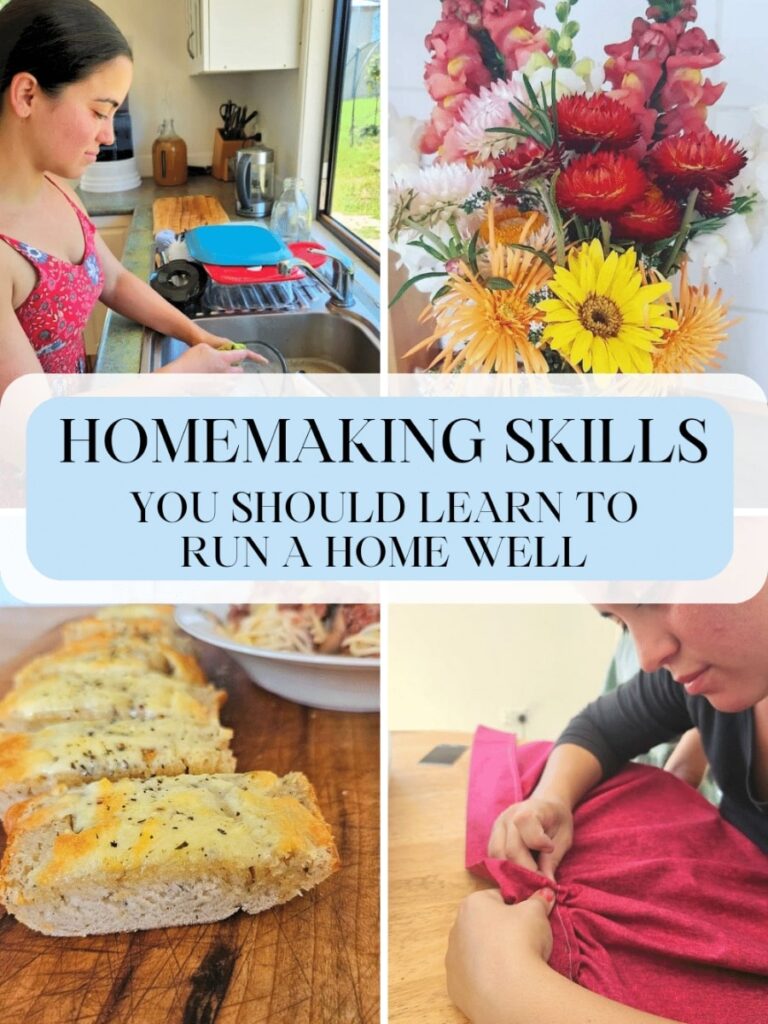
To become a good homemaker takes time and does require skills and an eagerness to learn. I started out with minimal skills! I did have an eagerness to learn though, and through lots of failures, I kept on trying.
While, my house is not perfect and my meals don’t always come out to plan, homemaking no longer intimidates me because of the skills I have been acquiring. So, let’s start with why you should even learn homemaking skills.
Why Should You Learn Homemaking Skills?
To become a good housewife takes skills! I didn’t grow up with these skills, but these are skills that will help you immensely in running your home more smoothly. Being able to cook food from scratch for example will help you put nourishing food on the table and also saves a lot of money.
If you can cook from scratch, it also makes mealtime a lot less stressful. There is always a learning curve when trying something new. Things will seem harder before they get easier, but they really do get easier with time.
Being able to budget and create a rhythm for your home will make you feel more at ease. Your home will feel more at peace because everything that should get done is, and you know where the money is going.
Learning homemaking skills will make your life easier, in many ways, financially and emotionally. I will discuss why each individual homemaking skill is useful and some tips on learning them next!
Skills Homemakers Should Learn
1. Budgeting Skills
This is an extremely important skill to have, and many people don’t ever learn! You should know how much money is coming in on a regular basis and how much money is going out.
I did write a more detail post on How To Save Money On A Low Income lots of budgeting advice in there and how to budge. There is also a free budget planner for my subscribers as well if you join my email list. You get access to all freebies! Join below!
My husband and I sit down every so often and discuss budgeting. We talk about how much is coming in every week and how much we are spending. You can’t save and get ahead without a plan. We write down all of our expenses.
There are your essentials that have to be paid for like rent/mortgage, fuel, food, electricity, water, phone bill, rates, car registration ect. Once you have your list of essentials write down how much you spend a week on those things on average.
Start with the fixed items like rent/mortgage it’s a fixed weekly rate, phone bill generally fixed monthly rate, break it down to weekly payments. Food can vary from time to time and so can fuel but get a good estimate on how much you spend a week.
All those items should be written down and calculate your weekly spending. See if you can cut down on anything to save more. For example, do you need a monthly subscription to Netflix, can you save more money on food, stay home more and spend less on fuel?
Anything extra you have after you do your deductions you can put away to save for whatever big goals you have!
2. Time Management/ Making A Schedule or Routine
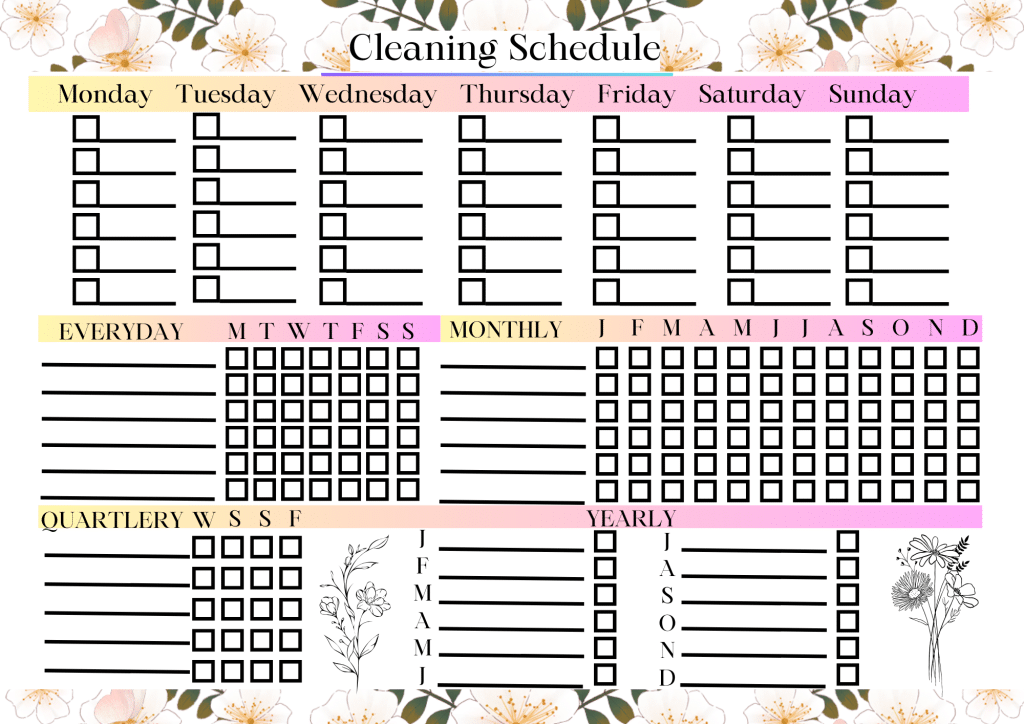
Sign Up Below For This Freebie!
Honestly if you want a more balanced peaceful home, you really want to get into a schedule or rhythm. If you want to learn How To Create A Peaceful Homemaking Schedule check out this post. I go into great detail in this post!
Now when I talk about making a schedule it’s just having a good idea of what you should be doing on a regular basis. For example,
Morning Time: I like to throw a load of laundry on, make breakfast, do the kids homeschool and hang the laundry.
Almost every day of the week I have one specific cleaning thing I want to get done like bathrooms, clean out the fridge, clean the kitchen, vacuum and mop the floors. I normally get this done during morning time but sometimes I’ll do it in the afternoon.
I have an evening routine as well which includes dinner, putting my kitchen to bed (yep it must be clean and ready for the next day), making sure kids are bathed, teeth are brushed, kids are read a story and off to sleep they go. This then allows me a couple of hours to do whatever I like afterward!
Having a schedule makes like so much easier because the kids can help out as well and they know what to expect.
It’s just getting into a rhythm and going with the flow. It’s so easy to get lost in what you should do next and the overwhelm of it all! If you have a sort of schedule on hand you know what your next move will be and there is no second guessing yourself.
3. Meal Planning
This is probably one of the most stressful things about running a home. I don’t know about you but there have been countless times where I had no idea what I was going to make for breakfast, lunch or dinner and had hungry kids repeatedly ask the same dreaded question! “What’s for dinner?”
While sometimes I don’t have an exact plan, I have learned to keep certain staples on hand and have certain routines in place so that a meal is never far.
Meal Planning Tips
- Keep staples on hand like pasta, pasta sauce, canned tuna, canned salmon, vegetables fresh and or frozen, rice, flour, spices ect. If you always have your staples you can whip up a meal in no time!
- Get meat out of the freezer in the morning. If you have meat dethawed you are ahead of the game.
- Have simple sides on hand. For example, sauerkraut keeps well in the fridge, frozen vegetables are an easy side dish, I love to bulk make Sourdough Garlic Bread and keep it in the freezer for a quick and easy side dish.
- Have salad dressings or salad dressing ingredients to make your salads more exciting.
- Pre-chop vegetables you use often and keep them in an airtight container in the fridge to make putting a meal together quicker.
4. Household Cleaning
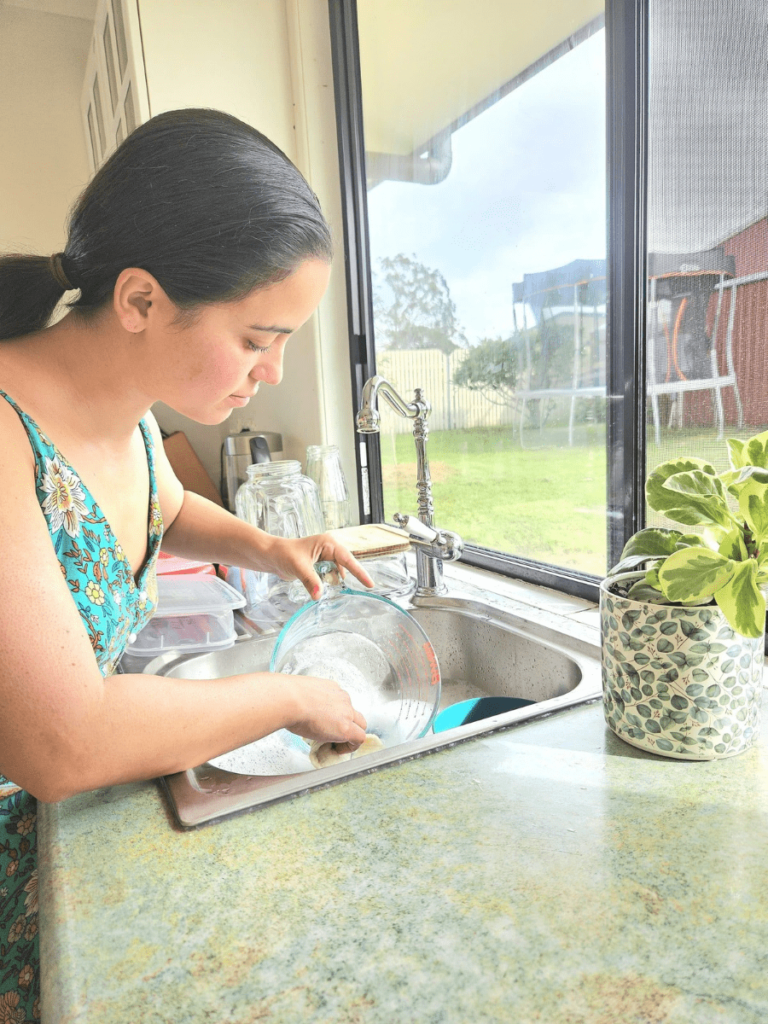
Cleaning is something you will have to learn as a homemaker. There are always things needing to be cleaned from dirty clothes, dishes in the sink, floors and toilets! It’s a repetitive never-ending task! Which is why creating a homemaking schedule is so essential which I mentioned above.
- Cleaning schedule: There are many ways to create a cleaning schedule. You can have certain days set to do certain tasks. Mondays could be washing days, Tuesday could be cleaning the bathrooms, Wednesday could be cleaning the kitchen. You get my drift.
- The way I wrote out my schedule is I wrote everything I would like to get done in my home from cleaning bathrooms to washing windows and wiping down window ledges! After I got a full list written down I sorted them into daily task, weekly task, monthly task, quarterly task and yearly ones. The daily tasks you do everyday like wiping kitchen counter and table down. Weekly task you can split into the 7 days you have in the week.
- Monthly task I splits into the 4 weeks, so I was doing only one bigger project a week. When it’s all written down it’s a lot easier to keep on top of and there isn’t an overwhelming amount to do every day. You are slowly chipping away. Think of it as a guide to keep you in the right path not a strict schedule!
- Learn how to clean things properly. I have to say I am still learning this! For example, when doing laundry, you should wash whites separate to dark coloured clothes, so your white clothes don’t get stained. You should always clean things from top to bottom. As you clean from the top things keep falling down below so don’t clean from bottom to top. Those are just a couple examples, but you see how learning to clean properly is important?
- I honestly just either look up what I’m wanting to learn how to clean on either google or YouTube and get a few ideas from several people.
- Make Your own cleaning supplies! It’s actually really easy to make your own natural cleaning products at home and requires minimal supplies. You can save money and they are a lot better for you and your home than the chemical products bought in the store. A quick search on google and you will find heaps of recipes for seriously everything!
5. Cooking From Scratch
Food is probably number one on the priority list! Everyone will need to be fed every day, several times a day for many years! You will make mistakes, and you will make bad meals. That is okay! I have done that and I’m pretty sure everyone else has too. That’s how we learn.
Cooking from scratch will allow you to make a meal out of ingredients and not have to rely on pre-packaged foods or takeaway. As long as you have staples on hand you will never be too far from a meal. Cooking from scratch is healthier as you choose the ingredients that go into it, it’s cheaper than takeaway or microwavable dinners and it’s rewarding.
Working with your hands and creating a beautiful meal really does bring joy. We were meant to work with our hands. It’s never boring cooking food from scratch either. There are always new recipes to try, new techniques to learn and new skills to master!
Tips To Cook From Scratch
- Keep staples on hand and plenty of spices for flavouring.
- Make sure to have meat defrosted or have canned meat like tuna or salmon on hand.
- Start with simple things like making bone broth, make your own condiments like Homemade Mayonnaise and learn how to steam and roast vegetables for delicious side dishes!
6. Organizing And Decluttering
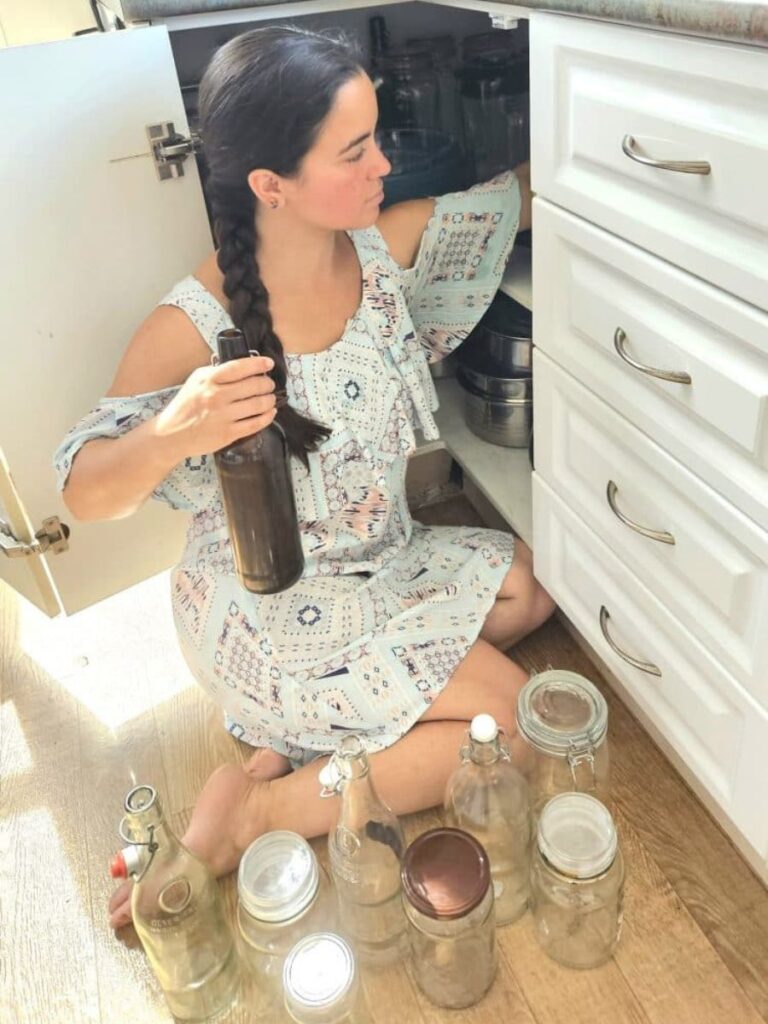
This is a skill worth learning. Decluttering a home can be seriously hard because it’s just so easy to keep bringing things in! Birthdays, holidays, people giving things away all add up to clutter in the home!
Having a system in place that everything must have its own spot will help with getting rid of things and keeping your home organized. If you want a more detailed post on this, I have one here for you How To Successfully Declutter Your Home Quickly. For now, here are some tips.
Decluttering Tips
- Start with one room and go through one drawer at a time. Keep it simple and stress free this way.
- Learn to say no to stuff. Stop and think is this a want or a need. And if you want it do you have space for it? Will you actually use it? If you don’t say no and keep going. Don’t worry that item isn’t gone forever if you ever really want it again there will be the option to purchase again another time!
- Have a box where you put things you want to donate into and keep it aside for a month. Whenever you are going through your home put things into that box until it’s full. If you haven’t missed anything in the month, go ahead and donate it. If you have missed something, then simply grab it out!
7. Sewing
This is something I am currently learning. It’s actually a lot of fun and a useful skill to have. Learning to sew means you don’t have to pay other people or depend on someone else to fix or hem your things. You can do it yourself and it’s a very rewarding feeling doing something yourself.
You don’t need to learn how to sew a dress, but I do believe being able to hand or machine sew things can really help save you time and money.
Sewing Tips
- I am a beginner myself but some of the first things I learned to sew was a button on pants. This was actually very easy to hand sew and works great!
- Learning to hem clothing that is too large like pants, shorts ect is very useful as well. Sometimes you seriously can’t find the right length pants so you either need someone else to cut them, do without or hem them yourself. This is a pretty simple beginner tasks as well.
- I personally like hand sewing little things that need mending. Short YouTube videos will get you on your way in no time. Those stuffed animals that have a slight tear or that shirt with a little whole can be fixed in no time!
- When you buy a machine YouTube if you can how to set it up. Watching someone else do it is so handy and makes it so easy. The set up can be the hardest part when you are a beginner but once you got it you got it!
8. Gardening
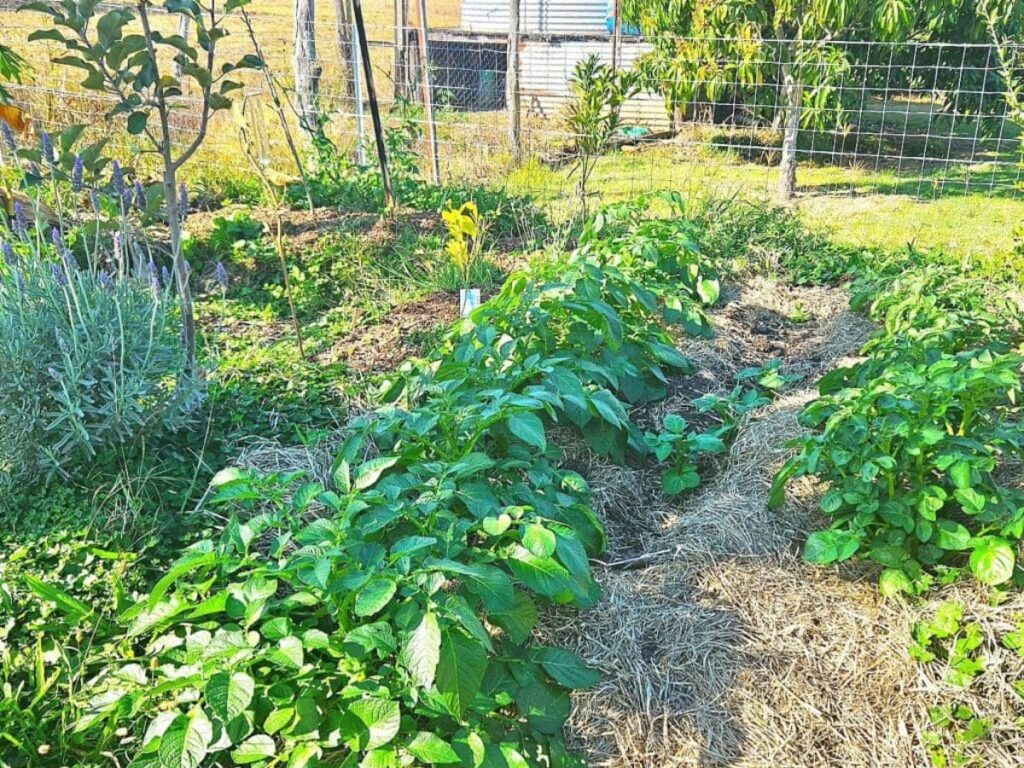
Growing food is a skill every person should have! We all need to eat right? Even if you have zero land you can still grow sprouts, have salad greens growing on windowsills and herb pots. These are some of the most expensive things at the shops but also some of the easiest to grow and need very little space!
Gardening and growing your own food means you can feel secure that you will have food to eat. Home grown food is more nutritious as you pick it when it’s ready to be eaten and normally eat it pretty soon afterward. It definitely saves you money as food is only getting more expensive as well.
It’s also extremely therapeutic being outdoors or even indoors caring for these little plants that then reward you with nutritious produce.
Gardening Tips
- Start small! If you don’t have a lot of land or even if you do start small so you don’t get overwhelmed.
- Grow things you know you and your family will eat. Don’t try growing exotic things you have never had or things you don’t even like to then just not eat them. Don’t be like me growing an abundance of eggplants and then giving them away because I realised, we don’t even like eggplant lol.
- Go to a local nursery so you are buying seedlings that are more adapted to your climate.
9. Preserving Food
You do not need to be growing your own food to be able to learn how to preserve. Being able to preserve food is such a handy skill to have as then you can enjoy that food even when it’s not in season at the time.
There are many different ways to preserve food and you do not need to know them all. But being able to preserve things when there is an abundance is an awesome way to save money and build up your food stock.
When you buy foods in season you can normally get a really good price for boxes of apples, strawberries, avocados, mangoes and more! When these foods are out of season goodness do they go up in price!
If you are growing food and have an abundant harvest you don’t want to waste it so being able to preserve it is super handy. I don’t think you can have too much food, can you?
List Of Preserving Methods
- Freeze food. This is one of the easiest ways to preserve food and one of my favourite ways as well. If done right food can last about a year in the freezer just fine! Just about anything can be freezed.
- Dry food either in the oven, dehydrator or using the sun! This is an awesome way to preserve food that doesn’t take up space in your fridge or freezer!
- Ferment food. This makes the food so much healthier; it can last quite a while in the fridge this way, and really helps keep your body strong.
- Canning food. I don’t do these yet but I’d like to learn. You can water bath can or pressure can. You do need different equipment for these items. By canning food you are able to preserve it on the shelf for many years which is super handy!
10. Home Remedies For Sickness
It’s nice having options available for when sickness occurs. Learning different ways to help ease a cold, soothe teething gums, manage congestion and so on is so handy. It really helps take the stress out of life if you have remedies on hand for common ailments.
I like to have a few options available, so I keep herbal mixtures for specific things like congestion and fevers. I love essential oils for earaches, sore gums, upset tummies, and congestion. They work so incredibly well! I have flower essences mostly to manage emotions. I also keep some homeopathics to help with bruising, rashes, itchy bites, teething, fever and upset stomachs as well.
You never know when sickness will fall. Most of the time it’s nothing super serious and can be treated from home. All you need is a few products that you always keep on hand and you are good to go. This is something that takes time to learn but is a skill have!
11. Basic First Aid
You never know when an accident will happen. It’s good to know what to do in different circumstances. If a child where choking what would you do? Did someone slice there finger pretty bad? What if someone got bit by a snake?
Learning CPR and having a basic first aid kit at home I feel is pretty important. We have venomous snakes here in Australia so we have a snake bite kit that helps stop the venom flowing until you can get to a hospital.
This is definitely a skill that should be learned not just for the home but even when you are out and about. Someone might need help and you can help them. You can either take a first aid course or look up different things online. Keep a few tools on hand and you can have peace of mind knowing you got everything under control.
12. Creating a Hospitable Home
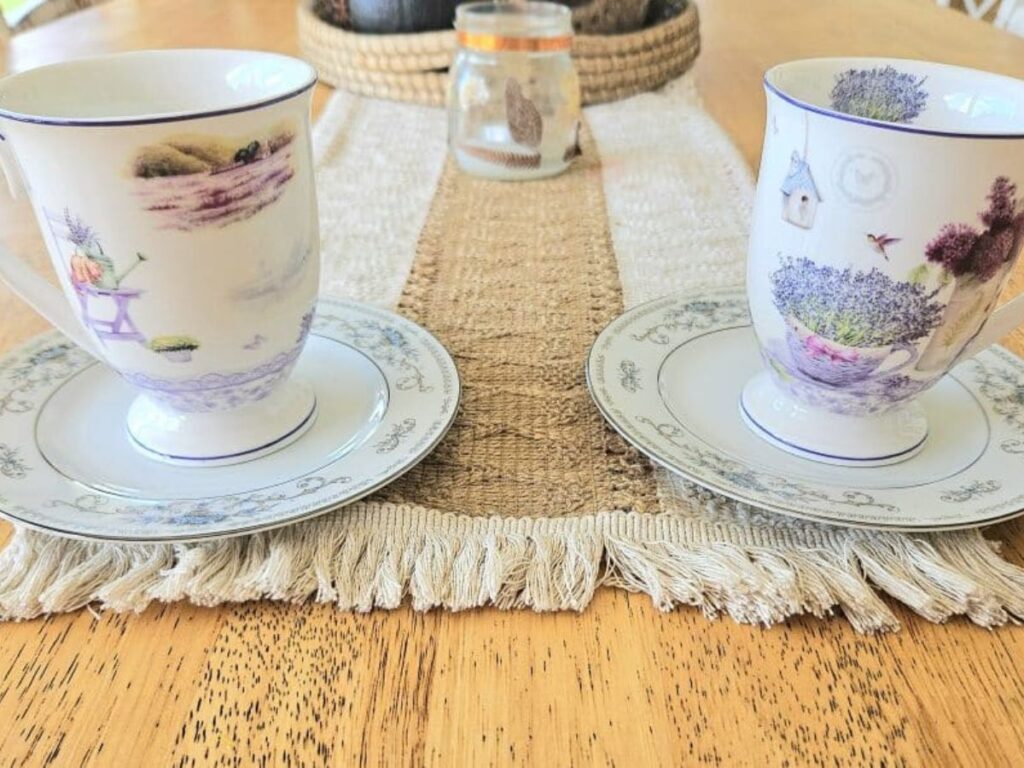
Creating a home that is inviting for others takes time and skills. A hospitable home by definition is a friendly and welcoming place for visitors and guests. Stop and think what makes you feel comfortable when you walk into someone else’s home?
This actually is a skill! I am constantly trying to improve my hospitable skills by ensuring I keep extra snacks on hand for guests. I also make an effort to ask questions about the other person and make it more about them than myself. Let your guest do most the talking by asking genuine questions and showing an interest in what they have to say.
I’ll list a couple things I find helpful to create an inviting home and mention a few things you shouldn’t stress too much about.
- Offering the person a drink, tea, coffee or water is a lovely way to get someone feeling comfortable. It’s welcoming and relaxing drinking a lovely warm tea while chatting to the other person.
- Have a few nibblies on hand. You can go through the effort of doing bake goods if you have the time or even just having some crackers, cheese and dips or a little fruit platter is a generous offering. From experience it’s really nice to keep extra stock on hand of a few items for unexpected quests. Food is such a social thing that I do think it’s a really lovely gesture to offer some if you are able to.
- Showing interest in the person by asking them questions about themselves and their lives.
- Let them know where the bathroom is in case, they need it. Most of us need to use the toilet and might be to be embarrassed to ask.
What Not To Focus On
- Don’t worry yourself about a spotless home! As long as there aren’t dead mice lying about and you can walk on the floor it should be fine! Don’t let perfectionism hold you back from meaningful connections with others.
- Try not to judge yourself or your home to harshly. You will find everyone is doing the same and it’s nice to talk to another human being.
13. Decorating
Creating a beautiful home is an art. This one is becoming one of my favourites. It’s making the space you live in not only functional but a beautiful place too. Layering your home takes time and skill.
What I mean by this is you might have couches, but you can add a rug on the floor, pillows on the couches and even a throw on the corner. Maybe you have some nice magazines on a side table with a beautiful potted plant.
Layering a home is just more than furniture it’s adding character and depth. Adding beauty to every space in your home will take time. And you will learn what you like and how you want to style your home. If you’d like to go more in depth on how to create a beautiful home, I made a blog post about it!
14. Homeschool
This might not be for everyone, but you never know if you might need it! With bullying on the rise, kids falling behind and peer pressure many parents are taking their kids out of school. It’s good to know what your options are.
Homeschooling children can be difficult initially if you only know the public school system. But there are heaps of curriculum you can choose from or even different homeschool styles you can try like charlottes mason, Steiner, eclectic, project-based learning and more!
There is so much support now, so many places offer exclusive homeschool deals, there are homeschool co-ops popping up all around and communities. It shouldn’t be hard to find someone local to talk to and ask some questions!
My biggest advice is not to stress too much! Kids will learn they are wired for it. They just might learn differently to what you might expect is all.
Conclusion
While maybe all these homemaking skills aren’t for you, I do think most of them are pretty handy in helping you thrive as a homemaker. What I love about homemaking is you get to constantly learn new things and improve on yourself.
It’s never boring! I’d love to know if you found this post helpful at all and what you think the most important homemaking skill is to learn? As always have a lovely day!

